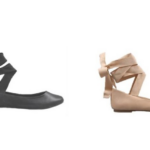
FSW Shoes - Spring Summer Launch
Come find the perfect summer colletion at FSW Shoes at Marketplace Gungahlin in the Big W Mall or call us at 02 6255 6298.



For the full collection see HERE
Buying the right summer shoes
It's official – wearing open toed sandals during the summer helps keep your feet healthier.
Sandal-wearers hardly ever suffer from athlete's foot as the air can circulate freely round their toes. Here's how to choose the most foot-friendly summer shoes…
Buy bigger
Chiropodist Emma Supple says you should buy your summer shoes a size bigger than your winter shoes.
She says: 'Your feet will swell in the summer so make sure your shoes are slightly bigger to avoid pinching or rubbing. Make sure the soles are nice and flexible too to protect your feet.'
Strap happy
Emma also advises buying sandals that have a strap round the back or heel of your foot. 'There are 28 bones in your feet and the biggest ones are at the back,' she says.
'It is far more comfortable if the strap is around the big bones than trying to expect the small ones at the front of your feet to take all the pressure.'
Keep it natural
Choose shoes that are made of natural materials – like leather or suede – as they will encourage your feet to breathe properly.
Save your soles
When you are on the beach or paddling in the sea, wear flip-flops or other light shoes to protect your feet from sharp shells, dumped rubbish or sea creatures.
And don't forget to apply sunscreen to the top AND soles of your feet to avoid burning them if they have not been exposed to the elements all year.
Low and lovely
For every day wear, pick shoes with heels no higher than 4 cm. This limits the amount of stress on your feet, calves and back, cutting
Give your shoes a rest
Try to change the shoes you wear every day as they need to 'dry' out. You lose up to half a pint of sweat each day through your feet so give your shoes a chance to recover!
You should also air your trainers before and after exercise to prevent any bacteria growing in your insoles.
If you wear socks or tights with your shoes, make sure you change them everyday to prevent infection. Your socks should be made of at least 70 per cent cotton or wool or other natural fibres.

